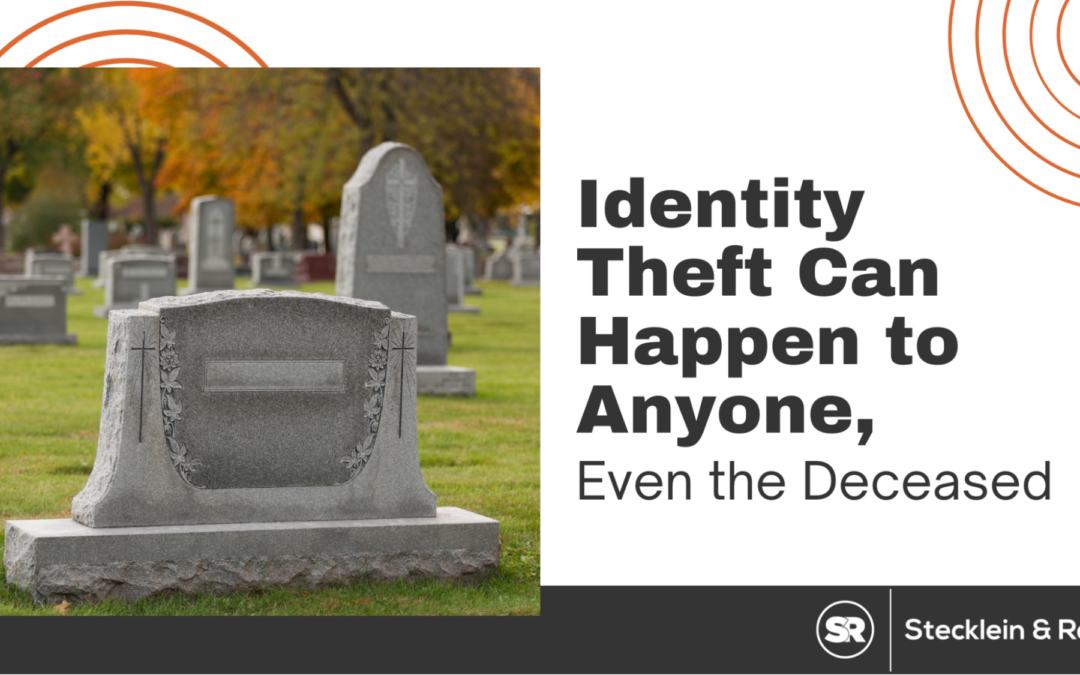We might sound like a broken record by now, but yes, identity theft can happen to anyone – and we mean anyone. Those who have passed away can still get their identities taken by thieves. It might seem like a crazy thought, but if a thief is dedicated enough to get someone’s information to be able to go on a shopping spree, take out loans, or hijack medical expenses, they will go as far as to look at recent obituaries to see who might be a good target.
Let’s Talk About Ghosting (The Identity Theft Kind)
Ghosting is the term used to describe when an identity thief uses the identity of a recently deceased person to open credit cards, apply for loans, or make other financial transactions in their name. This can even go so far as the thief using the deceased’s name to make new driver’s licenses or passports for themselves.
Unlike other cases of identity theft, ghosting can go on for months before anyone might notice, allowing the thief to get a great headstart in their crimes. This is because the thief takes advantage of the sweet spot right after the death but before government agencies and companies are contacted to close accounts. Many will look for obituaries to find full names and addresses and make their jobs as a thief easier.
Red Flags to Watch Out For
It can be understandably challenging to keep up with every little detail after someone close to us passes away, and identity theft is probably not even on the list. However, while that might be true, acknowledging these red flags can ensure you don’t miss something potentially damaging.
- You receive letters, emails, or phone calls from businesses or organizations addressed to your relative that you don’t recognize on their behalf.
- You are contacted about debts you know nothing about.
- You receive a tax bill addressed to your relative stating they have not paid.
- You see unfamiliar activity on bank statements or credit reports.
Your Immediate Next Steps
Like any identity theft case, we will always say that your first immediate action is to report. It goes the same for this situation. You will want to gather evidence and report the theft to the Federal Trade Commission. Within that report, you will want to provide a copy of the death certificate to ensure they understand the severity of the situation. Then, contact the Social Security Administration to ensure they know they have passed away and that their Social Security Number should not be used for anything. And lastly, contact the police to report the theft to the deceased person’s jurisdiction so the proper steps are taken.
How to Prevent This From Happening
There are many ways to help prevent the identity theft of a deceased loved one. The first is not to put any sensitive information in the obituary. With the obituary being the primary way thieves find their targets, don’t make it easy for them to choose your loved one. Leave out information such as their home address, middle name, birthplace, and mother’s maiden name.
Then, you want to contact the credit card bureaus (Experian, Equifax, and TransUnion) as quickly as possible and inform them about the deceased by providing them with a copy of the death certificate. This will put a major freeze on their accounts. You will want to then close or freeze any other accounts with banks, Social Security Services, credit card companies, mortgage/insurance companies, and credit unions. Lastly, it can be wise to familiarize yourself with your loved one’s debts to know what is real and what might be theft if something happens.
We know that we say it a lot, but identity theft truly can happen to any of us, even those we have lost. With the proper precautions, we can prevent it. If you have further questions or if identity theft has occurred and nothing has been done about it, contact the team at Stecklein & Rapp.

